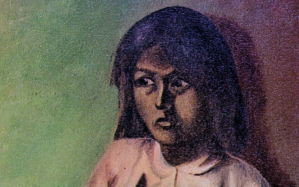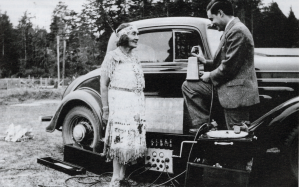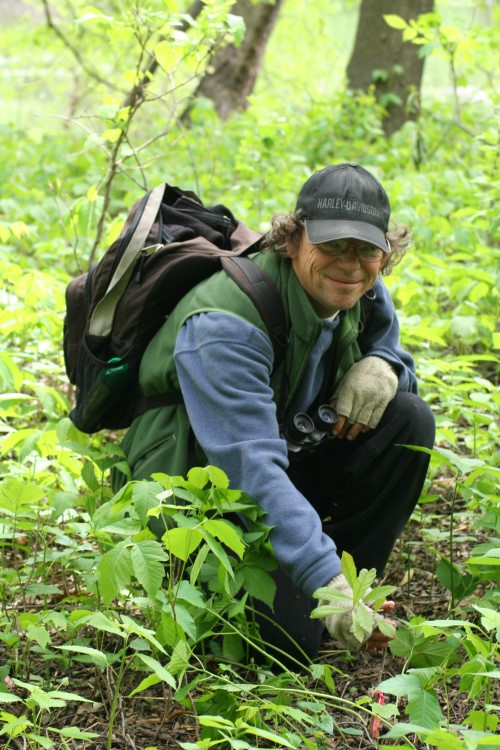THE TROUBLE WITH BECOMING AN AUNT
The Year 2000 Peace Writing Award
Scroll down for an excerpt.
This novel won the 2000 Peace Writing Award for an unpublished novel that contributes to peacemaking, granted by Peace Hope, James R. Bennett, Professor Emeritus, University of Arkansas. The story’s protagonist Joanie Lanson looks straight into the accelerating capabilities of nuclear weapons since her birth. Her father designs Atlas and MX missiles 1955-1980, and her brother falsely exaggerates the brightness of an x-ray laser the Star Wars program, missile defense. The excerpt here, titled Inertial Guidance, appeared in Mobius: the Journal for Social Change Vol. 14, No.1 Winter 2003 and at Transnational-Perspectives, edited by Rene Wadlow, United Nations associate, in 2001. The Sin of Saying No: 1941, another excerpt, appeared in Indigenous Fiction No. 7 Feb. 2001. You can access it at its own slot in the Novels page of this website.
INERTIAL GUIDANCE
(Copyright 2001 by Richie Swanson)
I did not understand until my late twenties that my father had created geometric equations that had been translated onto super-light cards that had raced through a miniature computer in the nose cone of an atomic missile. Even now I am not sure what it really means that his equations had been written in four dimensions instead of three, and they had been designed to shift the missile’s tilt and thrust, and they had made the missile the most accurately aimed threat Khrushchev had faced when he and Castro had begun to assemble SS-5’s and SS-4’s in Cuba in 1962.
I saw the first real sign of my father’s work–keypunch cards–when I was nine, and I thought the worst you could get from them was paper cuts, or maybe if you were old like Mrs. Sturdivant next door, an allergy from the dust that flew out as my brother Edgar ran his shriveled fingers across the edges of the cards.
The cards were perforated, my brother Simon said, the thinnest cardboard I had even seen, almost as thin as the wafers at Saint Ignatius. Edgar, the baby of the family, said the door to Dad’s study had been wide open, and he had found the cards right on top of Dad’s desk.
I jumped up and made my ugliest face, because even when the study door was open, we were not allowed to go near the desk, and if Edgar did not get the cards out of my room in half a second, I was gonna holler.
But Simon got up from the floor too, smiling his smart smile. Simon was blond and had a big high head and fast blue eyes like Dad, and he took the cards from Edgar and gave the top one a look, and I could tell he was already counting the rows on the card, studying where the holes were, probably memorizing and maybe multiplying too.
He and Edgar ran from my room, and I left everything on the floor, our Sorry board and the Sorry cards and our sodas, and went down the hall too. I went through the door to the basement and put on the light, and Simon stopped on the steps and gave me his don’t-be-a-dumb-sister look. I made my toughest shrug, tried to stare him down, but his fingers were pressing hard against the stack, pushing the cards crooked against his waist, and I thought he would bleed on them, and Dad would know we had taken them.
“Drop them, and you break your mother’s back,” I said.
“They’re secret codes!” he whispered, and then he went down the steps after Edgar, and I went down too. Edgar turned off a second switch like he thought the dark coming back would take away our noise; we made our way past the washer and drier; then a handle clunked, and Edgar pulled open the door of the bomb shelter, grunting because the steel was so heavy.
He turned on the battery-operated lamps; the light was dull and gray, coming through plastic shades that were supposed to look like bedroom lamps. I hated the fake lamps and everything else about the shelter too. The cold and the water in the big jugs in the corner made it feel like some hidden room in some side tunnel in the subway in New York, and all the food cans on all the gray metal shelves made me think of how Mom had carried grocery bag after grocery bag from her car into the basement–and how she had glared, ready to yell, when I had come snooping down to see why she had been taking so long.
Simon put the cards on the radio table, and Edgar leaned close to them, holding his shriveled pink stubs–pinched from birth–tight against his stomach, the same way he held them whenever he was sneaking or lying, like maybe he could push his stubs all the way through his shirt and into his skin, and no one would see them again.
He caught me staring and frowned at me to close the door.
“They’re Dad’s,” I said.
“Go ahead, fink,” said Edgar. “Rat on us.”
“I won’t,” I said.
“Joanie, Joanie, big baloney!” he said.
And I sang out before I could stop, “Tard, tard, t-a-ard, stick your hand in a cripple jar!”
Edgar’s face, his whole body caved in, and he started to cry, and Simon wobbled backward, bugging his eyes at me, and I whirled and ran out the shelter and through the basement and the garage and into the back yard. I ran into the woods, shaking inside, but feeling big too, kicking the leaves, poisons I had never kicked before.
“Tard, tard, t-a-ard…” I had wanted to say it ever since I could remember, every time Edgar teased me, because I was not allowed to hit him, and he knew I would not, and so I ran until I got behind a boulder, and then I got on my knees and dug into the leaves and dirt, and I got a stone as big as my fist, and another and another, and I set them up on a ledge, and if either Edgar or Simon were gonna come, they would find out who had a good arm and who did not.
* * *
The punch cards? Who cared? What made me mean was Edgar, Simon too! That was the worst, I thought, but then one night I woke, not in my bed or in the yellow of my night light, but with black air pressing all around me, and the gray metal shelves and the food cans glowing a dark pink above me. The red dot was bright on the radio, and Edgar blew a breath beside me, lying on a cot, sleeping, and I saw Simon too, just a black lump on a cot against the wall, and then the ham radio made a buzz, a crackle, and there was Dad lying on a mat on the floor near the steel door, more of the red shining on him than anything else in the room.
I got up on my knees and crawled to the end of my cot, and then cans were close to my face, black in my own shadow, and I pulled my face away, got off the cot slow and put my feet down soft on the edge of Dad’s blanket. I went on tiptoes over his ankles and then found the end of the shelves, and I went on cold cement, tiptoing behind all the cans, and then it was black by my feet and black where I thought the water jugs were and black where I thought Mom would be lying on another mat. I put a hand against a wall, against pimple-points of cinder blocks, and I pushed my foot a little more along the floor, and the cement was colder, and emptier, and darker.
And it came to me. Mom was upstairs, and Dad was being nice. Mom was sleeping in their bed, and Dad would wake her up only if the Russians were really sending their bombs. Because this was only practice, only for us kids, because Dad had carried us down in our sleep, and he had not told us because he had wanted to make sure we could stay in here without any warning.
The radio made a crackle again. It made more buzzing and then went dead and got loud suddenly.
“W-O-C-L,” said a man. “Hello. W-A-G-T. W–Washington. A–Anaheim,” and the buzzing started again, and the man got drowned out.
I came out from behind the shelves, and Dad was in the red glow just like before, his mouth and eyes closed. Static came on the radio and stopped. The man spoke again. “Khrushchev,” and there was a high whine. “S-S 4’s, S-S 5’s,” and then another whine.
Dad’s cheeks got a little bigger with a breath and then got smaller. The radio made more crackling, and I tiptoed to him and bent down above his face, and suddenly he blinked, glanced at Simon and Edgar and frowned at me.
“The Russians are sending their bombs!” I said.
Dad put up a hand to make me quiet, but I turned around, pushed on the handle of the door and went out into the basement. The bulb on the ceiling was on, and I ran beneath it, up the steps, into the upstairs hall. I ran to Dad and Mom’s room and turned on a light, but the knitted spread was on the bed the same as before, tight at the corners, and the pillows were fluffed-up high in their shapes, and the bed was empty.
“Mom?” I said, and I went to the kitchen and turned on another light, and all the chairs were pushed all the way against the Formica table.
“Mom?” I went into the living room and pushed another light switch, and the sofa was empty.
“Mom?” I went to the hall again, to the front door, and I pulled it open, and you know what Simon had said. That even if atomic bombs came at night when it was pitch black, you could see their rocket cases burning and flying down in the atmosphere, and then there would be a blue flash as strong as a hundred flashes of lightning at once. Then your hair or face or eyes would be burned, or you might be dead, just disintegrated, or maybe you would just be bleeding from bits of blown-up glass, or maybe the broken walls of your house would be piled on you, and if you were strong enough to yell and smart enough to see giant balls of smoke in the sky and to know gobs of fire would begin to fall down everywhere, then maybe you could get up and get to some water, to the beach or to a river. And then you would probably be with other people, and a lot of them would be groaning and crying, and a lot would have legs or arms missing or faces burned so black or twisted up so ugly that no one could tell if the faces belonged to men or women or monsters.
But out on the steps the air was still cold, still quiet, and there was no smoke, and Mom’s car was still in the driveway. I could still see Mrs. Sturdivant’s garage and stars twinkling all over the sky, and I was sure that none were turning orange or red or flying down yet.
I looked across the street toward the Turello’s, where Mom would go to talk with Mama Turello, to eat zucotto or cannolies, and I knew the Turellos had a basement, but just a laundry room, a television room, a room for canning jars, not any cinder-block room with any steel door.
“Joan.”
Dad came toward me from inside the house, looking at my barefeet.
“The Russians have not sent any bombs here.”
“I heard it!” I said, and then Dad stepped in front of me and stretched his hands open past the cuffs of his pajama sleeves. “They’re coming!” I said, and Dad knelt on his knees, putting a hand around the back of my head.
“No bombs are coming,” he said.
“A man said Khrushchev sent them!” I said. “On the radio! We gotta get Mom!”
“Mom is all right.”
“Where? The bombs are coming!”
I gave Dad a look to make him believe me, and he closed his mouth tight and shook his head no.
“Mom didn’t come home from Saint Ignatius,” he said. “She went to the hospital instead.”
I did not know what he meant. The hospital was on the highest hill in Eastpoint, ten stories tall, and its basement was where they kept their dead people, their furnace, not a shelter, and when the bombs came, what if Mom was on the top floor? I pushed my hands against Dad’s chest, and Dad lifted his head slow to one side. He took a swallow and closed his mouth tight again and looked at me like he was gonna get mad.
“Mom isn’t hurt,” he said. “She had a kind of a breakdown. She got exhausted, her nerves. She’s sleeping right now.”
“Where?”
“At Eastpoint Hospital.”
“Why?”
“She fainted at church. The Turellos found her with her head against a pew and took her to the hospital. Mom woke up right away, and I talked to her. Tomorrow she’s going to a better hospital, so she can get better rest.”
“Why?”
“So, doctors can watch her.”
I did not believe Dad. I pushed against his chest again, and suddenly my hands gave up, and I fell against him and whined. He put his hand around my head again, and I began to sob, and he patted my head and began to rock me.
“No bombs are coming, Joan,” he said. “Mom will be all right.”
I pushed my face against Dad’s pajama tops, sobbed a sob that ripped up out of my tummy, making Dad jerk his head away. I gasped, and he rubbed the back of my head and my spine, and I went on crying into his pajamas, and they felt soft like feathers, and his voice got so slow and so low I could hardly hear it.
“No bombs are coming, Joan. Mom will be all right. No bombs are coming. Mom will be all right.”
* * *
I held my face buried and felt afraid for a long time, and then one day Mom’s blouse and the swell of her breasts pushed up against my cheek and my ear, and I heard her heart, and her pounding was the only sound between our pew and the great high ceiling of Saint Ignatius. I listened to it and knew I should not be. I held my eyes closed and tried to find my sorrow and remembered what Mom had said. Jesus had a bruise in his heart. He had thorns in his head and rivets in his hands. He was aching and hanging on the cross, dying for all my sins.
I pressed my ear flat against Mom, felt her warmth, slid my hands around her, and she curled a finger under my chin and nudged me up. Her brow was pale in the white light from the ceiling, and the dots of her eyes had no shine, and she gazed real flat and slow at the red curtain and the black booth behind the altar.
No one else was at the confessional, and I built up my determination. Mom had been gone almost until Thanksgiving, getting better, and Dad had not brought us to Saint Ignatius, but sometimes I had gone down to the shelter, and I had closed the door, and then the kitchen, the whole house had begun to burn above me.
The whole state, the whole country would catch on fire, Simon had said. Trees and buildings would fly like splinters, and the only things left would be a roaring wind and people with cuts coming open from the inside out, people bleeding black blood, walking around thirsty and hungry. Simon had said, what if Mama Turello knocked on our shelter, and Papa Turello, Angelo, Tony, Rosie and Franci were dead, and Mrs. Sturdivant was dead too? What if Mama Turello came in, and her eyes had not melted, and we were drinking water in cups, eating Del Monte peaches and Mandarin oranges with spoons? What would Mama Turello say?
I looked at the red curtain and made my dress smooth on my lap and my socks straight at my knees. I took a big breath, but then Mom turned and started staring at the big Jesus on the wall, holding up her eyes like they were too heavy in their sockets. She closed them and then sighed like she didn’t want to open them again, and a blackness black as the shelter came into me, a blackness like the mud at low tide, stinking, coming through my nose and ears, through my mouth and everywhere else, and I told God I was sorry for it. I told God I would be better, clean like Mary, clean like God himself, and I promised the next time we went into our shelter, I would tell Mama Turello and everyone else first, and then we would get two squirrels and two blue jays from the woods, seeds from Mom’s garden, nuts from the trees, and maybe we could even go to the beach first, to high tide, and put water in a jar, and a sea horse too, and we could fit everything on the shelves and maybe start over.
“Mom?” I said, and she turned an ear. “I have something else.”
Mom made a pucker with her lips.
“Dad had us sleeping in the shelter those nights,” I said.
“He told me,” she said.
“But we didn’t tell anyone else.”
Her eyes flew open and burned blue-black at me. “Khrushchev has no god!” she said. “Castro has none! None of them do!”
A pain cracked in me so hard I blinked, and I nodded that I understood that I was wrong.
“It was not your sin not to warn other people,” said Mom.
“It was everybody’s,” I said.
“It was Castro’s, Khrushchev’s. They are not like us. They want a thousand rockets to carry a thousand bombs, with new transistors so their missiles will not miss. They do not even love their own people, Joan! When a scientist makes a rocket, and it does not work, they put his hand in a door and crush his fingers. All of that is their sin, Khrushchev’s and Castro’s, not yours. Your sin is calling Edgar a bad name, being mean to someone you really want to love.”
Mom’s face was hanging close to mine, her hissing hot on me, her words loud in my ears, and suddenly she grabbed my coat from the pew, and she yanked my wrist, pulling me up, and then my feet had to go fast, so I would not trip.
My shoes made a banging, and an old woman with a net on her hair stared at us over the tops of her glasses. Her grandson stared, then Mom pulled me onto the carpet of the center aisle. She pulled me toward the vestibule, and I looked back, and Father Anthony stepped from behind the confessional, big and broad in his cassock, his hands folded like he was going to say something.
But Mom yanked my arm again, and Father Anthony said nothing. She pulled me outside to the top of the steps, into a cloudy icy wind, and then she lifed my arms, putting on my coat. She patted and rubbed my fingers, but then her eyes burned at me again, and I yanked my hands away, and she caught a wrist again.
“You say nothing about Dad,” she said.
“I’m supposed to confess!” I said.
“Nothing in church, not anywhere,” she said.
“You said I had to come!”
“Say this, Joan. `I am sorry I wounded Him who died out of love for me. I detest my sins. I detest them most because I offend my God who art all good and deserving of my love.'”
“You said the priest gives it!”
“Your sin is the same as my sin. I know what to say for it. It is the sin of vanity.”
“How do you know?”
Mom squeezed one of my hands and led me down the steps.
“Trust your Mom,” she said. “I would not be wrong about my penance.”
“You’re not the priest!”
“Priests have already told it to me.”
“What if it’s not right?”
She pulled me, and we went across the parking lot, and I jerked my hand away again, and we got in the front seat of her car. I kicked my feet against the dashboard, shoving them hard against the padding above the glove compartment, putting my arms across my chest, pushing my teeth together like I hated her.
She looked at the key in the ignition, her eyes heavy in their sockets again. Her fingers trembled on the steering wheel, knocking against it. Her fingers flapped like the wings of a hurt bird, and they banged and banged on the wheel, and finally they stopped, and she gave me a long look, sweating, and I could not push with my legs anymore.
I put my feet on the floor and had tears coming and closed my eyes. The car started, rolled backward, bumped out of the parking lot and then moved forward, and I started to say my penance.
I said it the best I could. I said the words silently and pushed them past the top of my head, and they floated up into a gray space above me.










